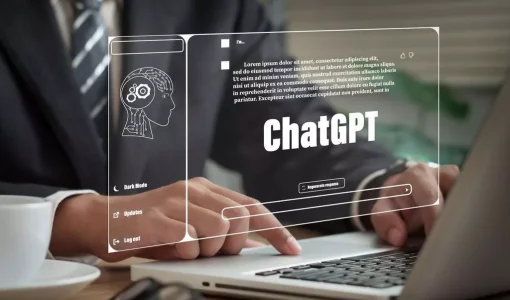Healthcare Chatbots Market Share, Size and Forecast 2023-2028
Patients can get quick and accurate answers to their questions without waiting hold. A healthcare chatbot can give patients accurate and reliable info when a nurse or doctor isn’t available. For instance, they can ask about health conditions, treatment options, healthy lifestyle choices, and the like.

Additionally, chatbots can be programmed to communicate with CRM systems. This helps the medical team in keeping track of patient visits and follow-up appointments. A triage chatbot is a healthcare chatbot that helps to determine the severity of an event and directs patients or providers towards appropriate resources.
They Win Patient Trust
If you do end up getting inaccurate information from a healthcare chatbot, don’t panic. Instead, contact the chatbot’s provider and let them know about the problem. As more and more people become aware of the potential, there are some great examples of how they can help patients. A metadialog.com recent study showed that after chatting with a chatbot on an asthma website, users were able to take a test that would have otherwise been difficult to access. Customer service chatbot for healthcare can help to enhance business productivity without any extra costs and resources.

Chatbots can help bridge the communication gap between patients and providers by providing timely answers to questions and concerns. 24/7 access to care, which is especially beneficial for those who live in rural areas or have limited transportation options. Chatbots are designed to help patients and doctors communicate with each other more easily. Furthermore, they automate manual processes such as scheduling appointments, ordering prescriptions, and providing medical advice.
More from ScienceSoft
Since healthcare chatbots can be on duty tirelessly both day and night, they are an invaluable addition to the care of the patient. Today, chatbots offer diagnosis of symptoms, mental healthcare consultation, nutrition facts and tracking, and more. For example, in 2020 WhatsApp teamed up with the World Health Organization (WHO) to make a chatbot service that answers users’ questions on COVID-19.
What is the best AI for medical questions?
Google has built the best artificial intelligence yet for answering medical questions. The Med-PaLM AI can answer multiple-choice questions from medical licensing exams and common health queries on search engines with greater accuracy than any previous AI and almost as well as human doctors.
Custom validation of phone number input was required to adapt the bot for an international audience. ISA Migration also wanted to use novel user utterances to redirect the conversational flow. The New Hyde Park, N.Y., healthcare provider launched a chatbot to help reduce no-shows for colonoscopies at the company’s Long Island Jewish (LIJ) Medical Center and Southside Hospital. To understand the value of using chatbots within healthcare it is necessary to consider the costs… KeyReply is an AI-powered patient engagement orchestrator that is revolutionizing the healthcare space by enabling Healthcare Providers and Insurers to engage with their customers across a variety of online platforms.
Conversational chatbots
The increase in internet penetration, smart device adoption, and the demand for remote medical assistance drive this market forward. We have been an innovation partner for many medical services companies. Whether it’s customized telemedicine software, custom healthcare solutions, or HIPAA-compliant chatbots, Jelvix developers have the best experience to help you with everything technology related! Talk with our experts on how to make the most of chatbot solutions in healthcare. Undoubtedly the future of chatbot technology in healthcare looks optimistic. Of course, no algorithm can match the experience of a physician working in the field or the level of service that a trained nurse can offer.
Generative AI in Customer Service Market Value to Hit USD – GlobeNewswire
Generative AI in Customer Service Market Value to Hit USD.
Posted: Thu, 08 Jun 2023 06:43:55 GMT [source]
Chatbots within a medical institution offer patients instant replies to pressing concerns related to clinical data, scheduling, or follow-up. Implementing healthcare chatbots in your organization means offering your patients around-the-clock availability and improved communication for some pressing needs. Market share data is available for Global, North America, Europe, Asia-Pacific (APAC), Middle East and Africa (MEA) and South America separately. DBMR analysts understand competitive strengths and provide competitive analysis for each competitor separately.
Why It Matters for Healthcare
These virtual assistants can provide real-time personalized advice to people with chronic conditions and offer support to those with severe symptoms or mental health issues. Chatbots also help patients manage their daily medication regimens via text messages. Healthcare chatbots have the potential to reduce costs for both patients and healthcare providers. For example, by providing 24/7 access to medical advice, chatbots could help to reduce the number of unnecessary doctor’s visits or trips to the emergency room.
We have integrated chatbots into enterprise Customer Relationship Management software like HubSpot for other clients. However, ISA Migration used a CRM that was built entirely by them, in-house. They needed a custom solution to integrate the chatbot with their CRM to store and nurture leads.
Schedule medical appointments
They also aid in freeing up hospital resources for treating existing and critical patients. Besides this, several health firms are focusing on developing solutions that provide digital healthcare assistance. As a result, there is a rise in the usage of hybrid chatbots that provide an interface for patients to interact with real doctors via live videos or text consultation. Furthermore, these chatbots offer mental health assistance and cognitive-behavioral therapy (CBT) to people with post-traumatic stress disorder (PTSD), anxiety, or depression. They also help people with autism improve their social skills via webcams and microphones.
- Geolocated chatbots can guide people through hospitals and allow them to ask questions based on the section of the hospital where they are located.
- The healthcare sector has turned to improving digital healthcare services in light of the increased complexity of serving patients during a health crisis or epidemic.
- Any business can request the opportunity to scale the support up front, especially those in the healthcare industry.
- At LiveHelpNow, we’ve been at the forefront of chatbot technology since the beginning.
- Youper is a healthcare chatbot specifically designed for mental health patients.
- Although chatbots are not able to replace doctors, they will reduce the workload by helping patients and delivering solutions to their issues.
It has a symptom checker that can be used to assess your symptoms and get a medical diagnosis. The platform sends you a report with possible causes and the next steps. Being able to reduce costs without compromising service and care is hard to navigate. Healthcare chatbots can help patients avoid unnecessary lab tests and other costly treatments.
Meet patients where they are
A basic chatbot can solicit relevant patient information such as names, addresses, symptoms, and insurance information. It can also register therapies and store all the data to be later used in improving clinical outcomes. One major disadvantage is that, for the time being, chatbots cannot deliver thorough medical counsel. Thus, these should be employed in conjunction with the direction of certified medical experts and not as a substitution.
- Implementing healthcare chatbots can be a cost-effective solution for healthcare providers.
- Chatbots for healthcare are regularly trained using public datasets, such as Wisconsin Breast Cancer Diagnosis and COVIDx for COVID-19 diagnosis (WBCD).
- One of the best uses of chatbots in the healthcare sector is automating medicine refills.
- ScienceSoft leverages code reusability Angular is notable for to create large-scale apps.
- Many medical specialists believe that chatbots could help in the self-diagnosis of mild ailments.
- It is only then that AI-enabled conversational healthcare will be able to show its true potential.
Virtual assistance-based symptom checkers have been available as mobile applications for several years. This technology is hugely beneficial for your patients trying to understand the cause of their symptoms. The job of medical virtual assistants is to ask simple questions, for example, have you been experiencing symptoms such as fever, cold, and body ache? Chatbots can give a personal and trustworthy touch to digital experiences in any area of the healthcare sector thanks to the instantaneous nature of a conversational back-and-forth. One of the tougher challenges in the healthcare industry is to book appointments. How many times have you had difficulty getting through to an appointment scheduler at your own doctor’s office?
What Are the Benefits of Cloud Computing in the Healthcare Industry?
Based on the understanding of the user input, the bot can recommend appropriate healthcare plans. The global healthcare chatbots market accounted for $116.9 million in 2018 and is expected to reach $345.3 million by 2026, registering a CAGR of 14.5% from 2019 to 2026. One of the most well-received and commonly used healthcare chatbot use is video consultations. The outbreak of Covid-19 presented a stark problem for both the patients and the healthcare industry. The pandemic made it hard for millions of patients worldwide to reach hospitals to consult with their doctors face-to-face. Healthcare chatbots were the solution that institutions implemented to face this problem.
How to build medical chatbot?
- Getting started. First, you need to sign in to Kommunicate using your email ID.
- Build your bot.
- Compose the Welcome message.
- Setup questions and answers.
- Test your chatbot.
